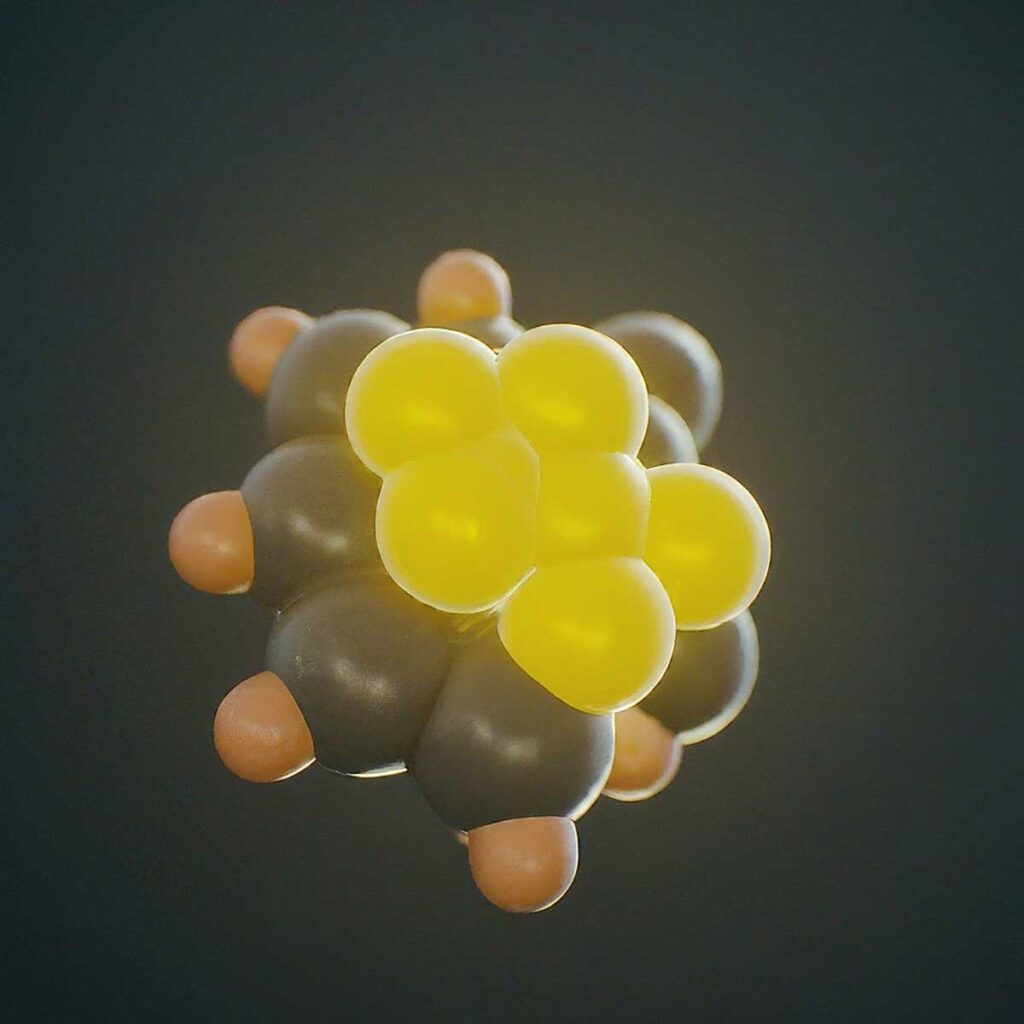Imagine a time 4 billion years ago, when Earth was a young planet teeming with volcanic activity and shrouded in a primordial atmosphere.
Scientists have long pondered the question of how life arose in this harsh environment, and a new study published in the journal Science may have just provided a crucial missing piece of the puzzle.
Researchers from University College London (UCL) have successfully synthesized pantetheine, a key component of Coenzyme A, which is essential for all living organisms.
This feat is significant because it demonstrates that pantetheine could have formed naturally under conditions that existed on early Earth, suggesting that it played a role in the origin of life.
Pantetheine: The Powerhouse of Life

Pantetheine is a small molecule that plays a vital role in metabolism, the set of chemical processes that keep organisms alive.
It acts as a carrier for molecules involved in energy production, fatty acid synthesis, and other essential functions.
“Coenzyme A is in every organism ever sequenced,” says Professor Matthew Powner of UCL Chemistry, who led the study. “It’s fundamental to life as we know it.”
Previous Attempts and Challenges
Synthesizing pantetheine in the lab has proven challenging in the past. In 1995, the late chemist Stanley Miller, a pioneer in the field of origin of life research, attempted to create the molecule using acid chemistry.
However, his experiment yielded very low amounts of pantetheine and required harsh conditions, casting doubt on whether it could have formed naturally on early Earth.
A New Approach with Nitriles
The UCL team took a different approach, using nitriles instead of acids. Nitriles are organic compounds that contain a carbon-nitrogen triple bond, which makes them highly reactive and energy-rich.
“It’s the nitriles that bring the energy and the selectivity,” explains Dr. Jasper Fairchild, a lead author of the study. “Our reactions just run in water and produce high yields of pantetheine with relatively low concentrations of chemicals needed.”
This new method successfully produced pantetheine at room temperature in water, mimicking the conditions that may have existed on early Earth.
This finding challenges the notion that life could only have originated in pools that periodically dried out, as some researchers have proposed.
Implications for the Origin of Life
The ability to synthesize pantetheine under plausible early Earth conditions suggests that it could have been readily available to early life forms.
This finding strengthens the theory that life emerged through a gradual process of chemical evolution, with complex molecules like pantetheine playing a crucial role.
“Our work suggests this conventional view has ignored an essential ingredient, the energy required to forge new bonds,” says Professor Powner. “The reactions look a little different with nitriles but the end products—the basic units of biology—are indistinguishable whether formed through acid or nitrile chemistry.”
While the study focuses on the chemistry, the researchers believe that the reactions they demonstrated could have taken place in pools or lakes of water on early Earth.
Further research is needed to explore how these molecules might have interacted and ultimately led to the first living organisms.
Conclusion: A Step Closer to Understanding Life’s Origins
The successful synthesis of pantetheine under early Earth conditions represents a significant step forward in our understanding of the origin of life.
This finding suggests that the building blocks of life could have formed more readily than previously thought, paving the way for further research into how these molecules came together to give rise to the first living organisms.
FAQs
Pantetheine is a small molecule that is part of Coenzyme A, which is essential for metabolism in all living organisms. It plays a role in energy production, fatty acid synthesis, and other vital functions.
The UCL researchers used nitriles, which are organic compounds with high energy, to synthesize pantetheine in water at room temperature.
More information: Jasper Fairchild et al, Prebiotically plausible chemoselective pantetheine synthesis in water, Science (2024). DOI: 10.1126/science.adk4432. www.science.org/doi/10.1126/science.adk4432

